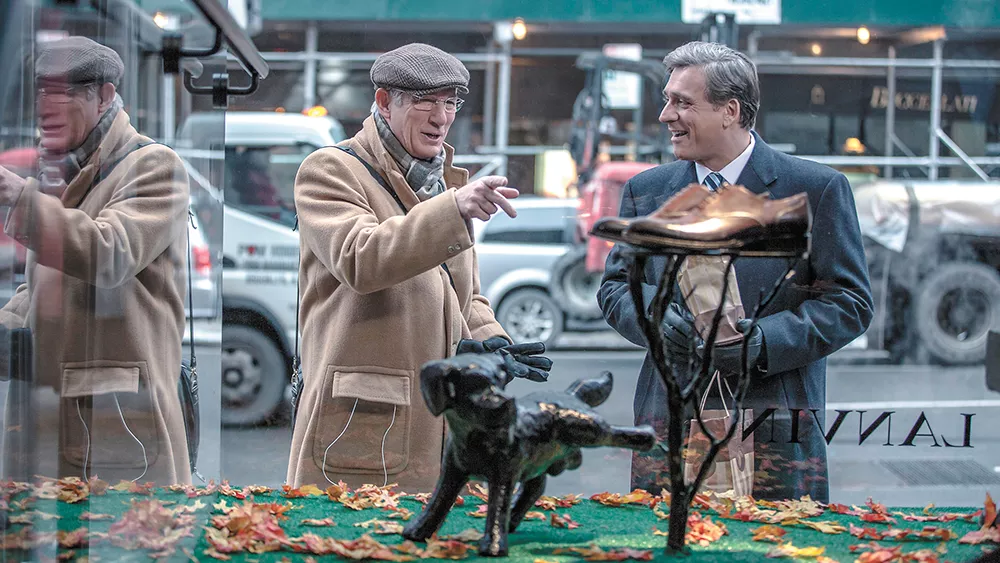The pretty-boy veneer that has often overshadowed some of Richard Gere's best performances is nowhere to be found in the finely honed character study Norman, which has been aptly subtitled The Moderate Rise and Tragic Fall of a New York Fixer. The popular actor disappears into the title role, a New York Jew who wants nothing more than to be connected to the movers and shakers of the world, to walk beside them as a valued player and associate, but who has no ambition to be a leader himself.
Norman Oppenheimer wants to be the glue that connects important people — a macher, to use a Yiddish term that has no single English equivalent. The film's all-telling subtitle uses the word "fixer," though that doesn't fully encapsulate the sense that Norman wants to be a big shot who can make things happen, but from behind the scenes instead of in the spotlight. Reflected glory is good enough for Norman.
He's a man of the streets; in fact, we never see the inside of his home. Instead, we always see Norman outside, on the move in Manhattan, clad in a camel hair coat and natty cap, a telephone cord perpetually dangling from his ear. Always at the ready is his ambiguous business card that simply reads "Oppenheimer Strategies." In many ways, he's a stereotype of a pushy Jew, using vague connections to get his foot in the door, relying on bluffs and wiles to worm his way into the lives of those who would rather avoid his tacky ways.
Just when we're about to give up on Norman as merely a legend in his own eyes, we witness a big payoff on one of his gambles. Norman notices a minor Israeli dignitary named Micha Eshel (Lior Ashkenazi) admiring a pair of shoes in a Fifth Avenue store window, so he buys the ridiculously expensive footwear for the politician. His bank-account-breaking bet pays off three years later when Eshel becomes Israel's Prime Minister and remembers his old benefactor, a connection that Norman then attempts to parlay into other deals. Yet those deals aren't about attaining riches so much as consolidating Norman's influence among financial players, family, and even his synagogue, where Steve Buscemi plays the rabbi.
Writer-director Joseph Cedar, a New York-born Israeli, builds on the knowing insights evident in his previous film Footnote, which also co-starred Ashkenazi as a Talmudic scholar working alongside his rivalrous father. Cedar has an acute understanding of the conflicting intersections of religion, family, personality and politics, and these elements tangle into a beautiful knot in Norman. Despite a climax and denouement that are conveniently scripted to favor classic tragedy over believability, the film is a sharp and keenly etched study of a man who would be the sidekick to kings. ♦


















